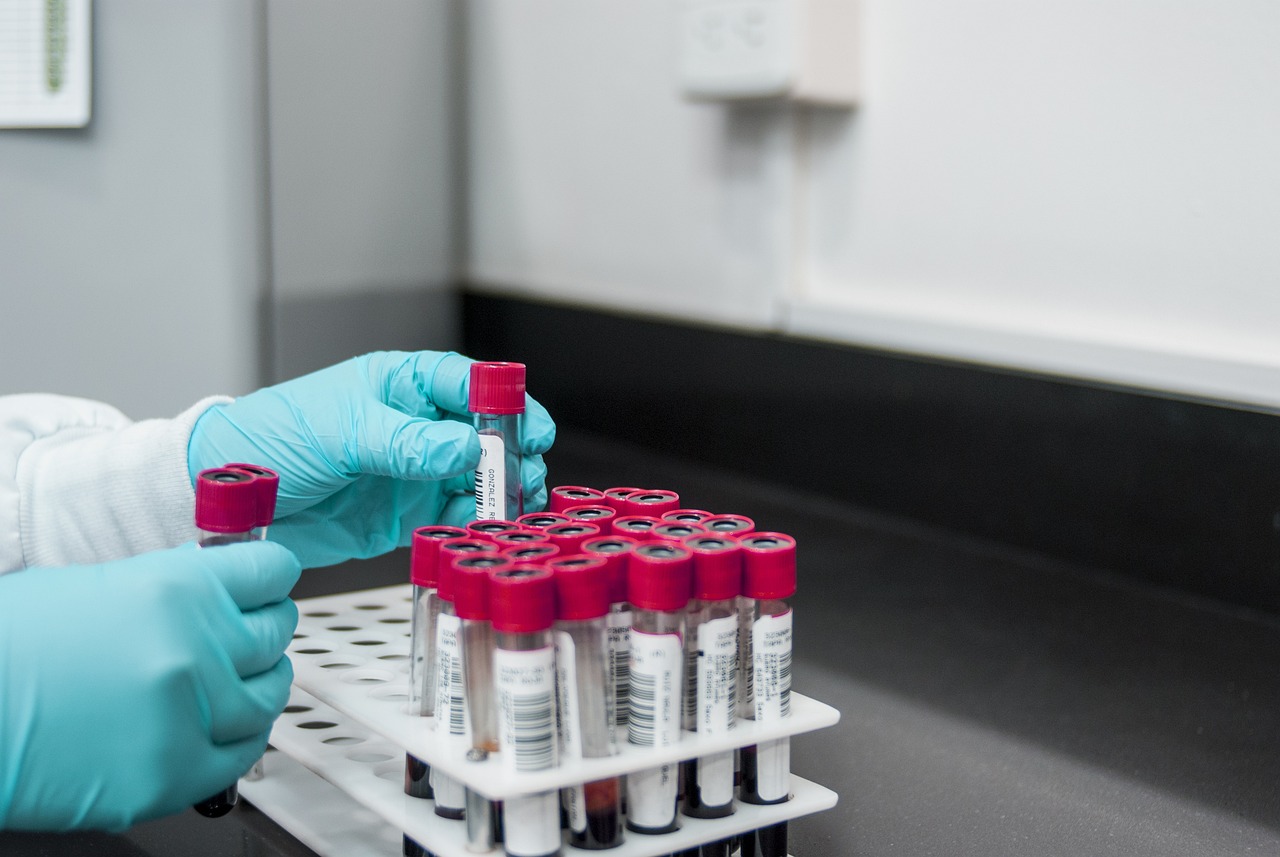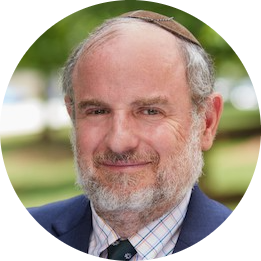
Judaism Says Yes to IVF and PGD
Michael J. Broyde
Image by Fernando Zhiminaicela from Pixabay (License).
This article is part of our “Religious Perspectives on Assisted Reproduction and Surrogacy” series. If you’d like to explore other articles in this series, click here.
The Jewish ethical perspective on in vitro fertilization (IVF) provides a nuanced view that balances the value of life, the importance of having a family, and the ethical use of medical technologies. The Jewish ethical approach does not view pre-embryos (fertilized eggs, prior to implantation) as having the status as a human life or even the same status as a fetus. This approach significantly influences the positive ethical view the classical Jewish tradition takes around IVF and associated technologies like genetic screening and pre-implantation genetic diagnosis (PGD).
In a Jewish perspective, IVF is permissible and even commendable under certain conditions, since it facilitates the fulfillment of the Divine commandment of procreation and addresses issues of infertility.
PGD, a technology that allows fertilized eggs to be examined for genetic disorders – and then implant via IVF only those eggs that are disease free – is also permitted (and even encouraged, in the face of illness) in the Jewish tradition. Jewish law sees assisted reproduction (artificial insemination, IVF, PDG, genetic engineering and more to come) as human assistance in the fulfillment of the Divine commandments to procreate and on the whole a religiously and ethically positive process.
As Lord Immanuel Jakobovits, the former Chief Rabbi of Great Britain and the Commonwealth, stated in 1997, “We can dismiss the common argument of ‘playing God’ or ‘interfering with divine providence.’ Every medical intervention represents such interference. But such “interference” is permitted only for therapy, not for eugenics — “for correcting nature, not for improving it.” No one in the Jewish tradition doubts that curing infertility or avoiding the birth of ill children is a form of healing and permitted.
The Pre-embryo and Judaism
One pivotal aspect in Jewish Law worth focusing on is the status of the pre-embryo. Nearly all Jewish law authorities recognize that embryonic development within the first forty days of conception – and certainly not before implementation – do not have any human status. This perspective has direct implications for how pre-embryos are handled in IVF procedures, including their selection and potential destruction if not implanted. Ethically, this is justified within the framework that these embryos do not yet have the “sacred protected status” of a human being or even a fetus since prior to forty days no human form can be seen, thereby allowing certain liberties in handling them that would not be permissible after that time.
Indeed, the Jewish tradition would permit the use of pre-implantation embryos for stem cell research since such research is not considered an act of destruction of life and in view of the possible, very positive results of stem cell research for the cure of disease, Rabbi Gedalia Dov Schwartz, one of the great Jewish law authorities of the previous generation, noted that “it is not only permitted but it is an imperative to support and proceed with this” research. This view makes much sense in the Jewish view – medical treatment to cure illness is more important than human tissue.
Furthermore, Jewish ethical discussions extend to the motives behind using IVF and PGD technologies. The intention behind creating a life is crucial; for example, if the purpose is to save another life or significantly improve the quality of life through genetic matching, such actions might be viewed more favorably. This is based on a broader ethical consideration of the outcomes and benefits of any medical intervention, which should aim to increase health and alleviate suffering.
A Comparison: Jewish Values, Catholic Ideals, Islamic Traditions and American Decentralization
The Jewish tradition stands in contrast with both the Christian and Islamic tradition and is methodologically different from the American framework as well.
Christian perspectives vary significantly across denominations, yet common themes emerge, particularly the emphasis on the sanctity of life and the integrity of the marital union. Many Christian ethicists and theologians express caution about IVF, particularly concerning the creation and potential destruction of embryos. They advocate for methods that respect life at all stages, encouraging approaches that do not involve the discarding of embryos or the use of donor eggs or sperm, which could undermine the marital bond. This stance reflects a broader Christian commitment to life as a divine gift and the belief that all medical interventions should be evaluated through the lens of scripture and moral theology.
The Islamic view aligns closely with these concerns about lineage and the sanctity of life, emphasizing that reproductive technologies should be used within the marital relationship and without involving third-party donors. This approach ensures that children born via IVF maintain a clear biological connection to their parents, reflecting the Islamic emphasis on family integrity and lineage preservation. Like the other Abrahamic faiths, Islam sees medical technology as potentially beneficial but insists that it must be used within specific ethical boundaries to prevent moral transgressions.
The legal landscape of in vitro fertilization (IVF) in the United States is markedly decentralized, characterized by a near complete lack of unified federal legislation that directly governs IVF procedures. This results in a mosaic of state-specific regulations that address various aspects of assisted reproductive technology. States vary widely in their approach to IVF-related issues such as consent forms, ownership of genetic material, and surrogacy agreements, leading to a complex legal environment that patients and providers must navigate.
Historically, American law on IVF and related technologies has evolved primarily through state case law rather than through federal statutes. Significant court cases such as In Re Baby M. and Calvert v. Johnson have played pivotal roles in shaping the legal parameters, particularly in defining parental rights in surrogacy agreements and determining the status of embryos under contract law. These decisions often emphasize the intentions of the parties involved as articulated in contractual agreements, reflecting a broader American legal principle that prioritizes individual autonomy and contractual freedoms over ethical concepts.
Moreover, the American legal system’s approach contrasts sharply with the more doctrinally driven frameworks found in religious legal systems, which may embed moral and ethical considerations into the legal fabric governing reproductive technologies. In the U.S., the focus tends to be on pragmatic aspects, such as the enforceability of agreements and the protection of individual rights, leaving broader ethical debates on life and parenthood to be settled by individual choice rather than legislative decree.
This patchwork approach reflects a broader trend in American governance of medical technologies, where innovation often outpaces regulation, and ethical diversity leads to varied legal interpretations and applications. The result is a legal environment where the specifics of IVF law can differ dramatically not only from one state to another but also from one judicial decision to another, creating a dynamic yet uncertain legal landscape for reproductive technology.
Recent Developments in Alabama: An Exception
In Alabama, the legal landscape surrounding IVF has become particularly fraught following a ruling by the state’s Supreme Court in LePage v. Center for Reproductive Medicine, which classified frozen embryos as “children.” This decision created significant legal uncertainty and operational challenges for IVF providers, leading to a temporary halt in services by some clinics due to concerns over potential legal liabilities associated with the destruction of embryos. In response, the Alabama legislature acted quickly to restore access to IVF services by passing a law that provides civil and criminal immunity to doctors and clinics involved in the routine processes of IVF, including the discarding of embryos. This legislation, which went into effect immediately, aims to shield providers from lawsuits and criminal charges related to embryo destruction, ensuring that fertility services can continue without the fear of legal repercussions and without denying that pre-embryos are people.
This situation in Alabama illustrates the complex interplay between state law, medical practice, and deeply held ethical and moral beliefs, highlighting the unique challenges faced in the U.S. legal system when it comes to regulating advanced biomedical technologies. As states navigate these issues, the patchwork of laws concerning IVF is likely to continue evolving, reflecting broader national debates about life, rights, and reproductive technology. The Jewish tradition would not agree with LePage and would not really agree that damages to pre-embryos should be without liability either, although there is no doubt that pre-embryos are not people. (Damage to pre-embryos in the Jewish tradition might be like any property damage.)
Conclusion
In summary, while IVF and related technologies are complex and raise various ethical issues, the Jewish tradition offers a framework that values life, intends for the positive use of technology, and respects the sanctity of human life at all stages, albeit with a nuanced understanding of the status of embryos, pre and post implantation. This balanced approach allows for the ethical use of IVF in almost all situations as consistent with the Jewish legal and ethical principles. ♦

Michael J. Broyde — whose given Hebrew name is Mattiyahu — is a law professor at Emory University who writes on matters of Jewish law generally. He is an ordained rabbi who has served in a variety of rabbinical roles. For more information about him, see www.broydeblog.net.
Recommended Citation
Broyde, Michael J. “Judaism Says Yes to IVF and PGD.” Canopy Forum, September 18, 2024. https://canopyforum.org/2024/09/18/judaism-says-yes-to-ivf-and-pgd/.
Recent Posts










